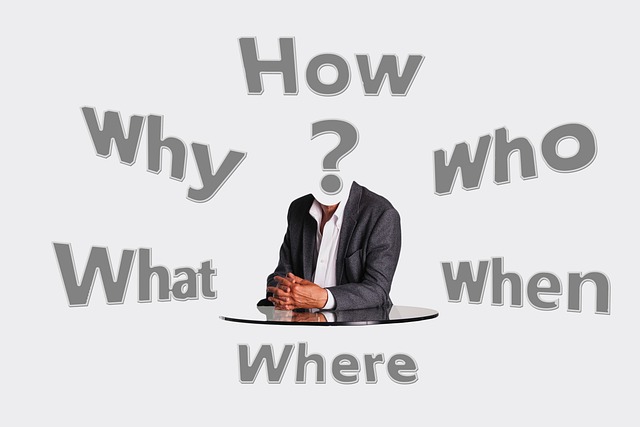Business owners face numerous risks daily, making comprehensive insurance a cornerstone of risk management. Understanding what business insurance covers is crucial for any entrepreneur. This article provides an in-depth guide to various types of business coverage, from property damage and liability to specialized policies like professional errors & omissions (E&O) and cyber liability. Learn how each policy protects against unique risks, ensuring your business’s resilience and financial security.
Understanding Business Insurance: The Basics

Business insurance is designed to protect business owners from financial loss resulting from unforeseen events. What does this encompass? Broadly speaking, business insurance covers a range of potential risks specific to operating a business. These can include property damage or loss, liability for injuries to customers or employees, and interruption to business operations due to events like natural disasters or civil unrest. Understanding what’s covered under your policy is crucial when safeguarding your investment and ensuring financial stability.
– Definition and significance of business insurance

Business insurance is a crucial safety net for any enterprise, offering financial protection against potential risks and liabilities. What does business insurance cover? It encompasses a wide range of perils, from property damage and legal disputes to accidents involving employees or customers. This coverage helps businesses mitigate the financial impact of unforeseen events that could disrupt their operations or expose them to legal claims.
In essence, business insurance is designed to shield owners from significant financial losses, ensuring their business can recover and continue thriving in the face of adversity. By evaluating their specific risks and choosing appropriate coverage options, owners can tailor their insurance policies to meet their unique needs, providing peace of mind and safeguarding their investment.
– Types of coverage and their purpose

Business owners need comprehensive insurance coverage to protect their assets and manage risks. What does business insurance cover? Typically, it includes several types of coverage designed to address distinct potential liabilities.
Property insurance safeguards physical assets like buildings, equipment, and inventory from perils such as fire, theft, or natural disasters. Liability insurance, on the other hand, covers legal expenses and damages resulting from injuries or property damage sustained by third parties on business premises. Business interruption insurance is also crucial, providing financial protection during unforeseen events that halt operations, such as a pandemic or civil unrest. Additionally, professional liability insurance shields against claims arising from negligence in services provided to clients.
Property Damage and Liability: Core Protections

Business owners looking for comprehensive protection should consider what does business insurance cover when selecting their policy. One of the core protections offered is coverage for property damage and liability. This means that if your business premises or operations cause physical damage to others’ property or if someone sustains injuries on your premises, the insurance can help cover legal fees, medical bills, and other associated costs. Understanding these fundamental aspects of business insurance is crucial for any entrepreneur aiming to safeguard their assets and mitigate potential risks.
– What is covered under property damage liability?

Property damage liability is a crucial component of what does business insurance cover. It protects business owners against financial loss resulting from physical damage to property. This includes damage caused by events such as fires, storms, accidents, or vandalism. If your business is found liable for the damages, this coverage helps pay for repairs or replacements, up to the limits specified in your policy.
Beyond structural damage, property damage liability may also extend to covering the cost of temporary relocation or business interruption if your premises become uninhabitable or inaccessible. This ensures that your business can continue operations during unexpected events, providing a level of financial security and stability in challenging times.
– Examples of scenarios and claims

– Importance for physical locations and assets

For business owners with physical locations and assets, liability insurance is what does business insurance cover? It acts as a financial shield against potential risks and claims. Without adequate coverage, a single incident could lead to significant financial strain, forcing businesses to shut down or declare bankruptcy. Liability insurance steps in to protect these assets by covering legal fees, settlement costs, and damages awarded in cases of bodily injury or property damage.
Whether it’s a slip-and-fall accident on your premises, damage caused by equipment failure, or allegations of professional negligence, liability insurance provides the financial backing needed to navigate these challenging situations. By ensuring that what does business insurance cover includes such incidents, owners can focus on running their businesses with peace of mind, knowing they’re protected against unforeseen events that could disrupt or even end their operations.
Professional Responsibility and Errors & Omissions (E&O) Insurance

Professional Responsibility and Errors & Omissions (E&O) Insurance are crucial components of what does business insurance cover. These types of coverage protect business owners from potential legal issues arising from professional negligence or mistakes in their services. For instance, E&O insurance safeguards against claims of malpractice, misstatement, or omission that may lead to financial loss for clients. Similarly, professional responsibility insurance covers costs associated with defending against lawsuits and any settlements resulting from alleged negligence in professional duties.
Business owners, especially those providing expert advice, consulting, legal, or accounting services, should seriously consider these types of coverage given the potential for significant financial exposure. They offer a safety net by helping to manage defense expenses and settlement costs, ensuring business sustainability even in the face of unexpected claims.
